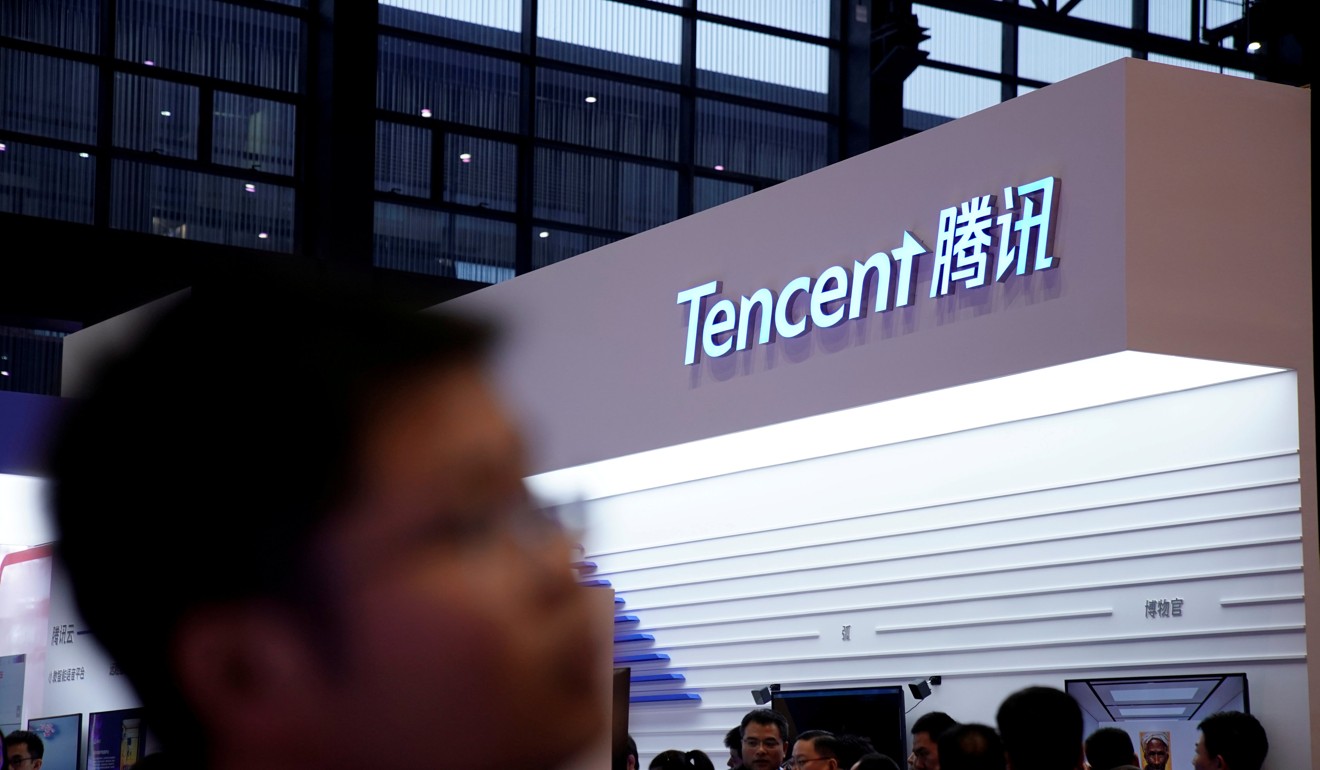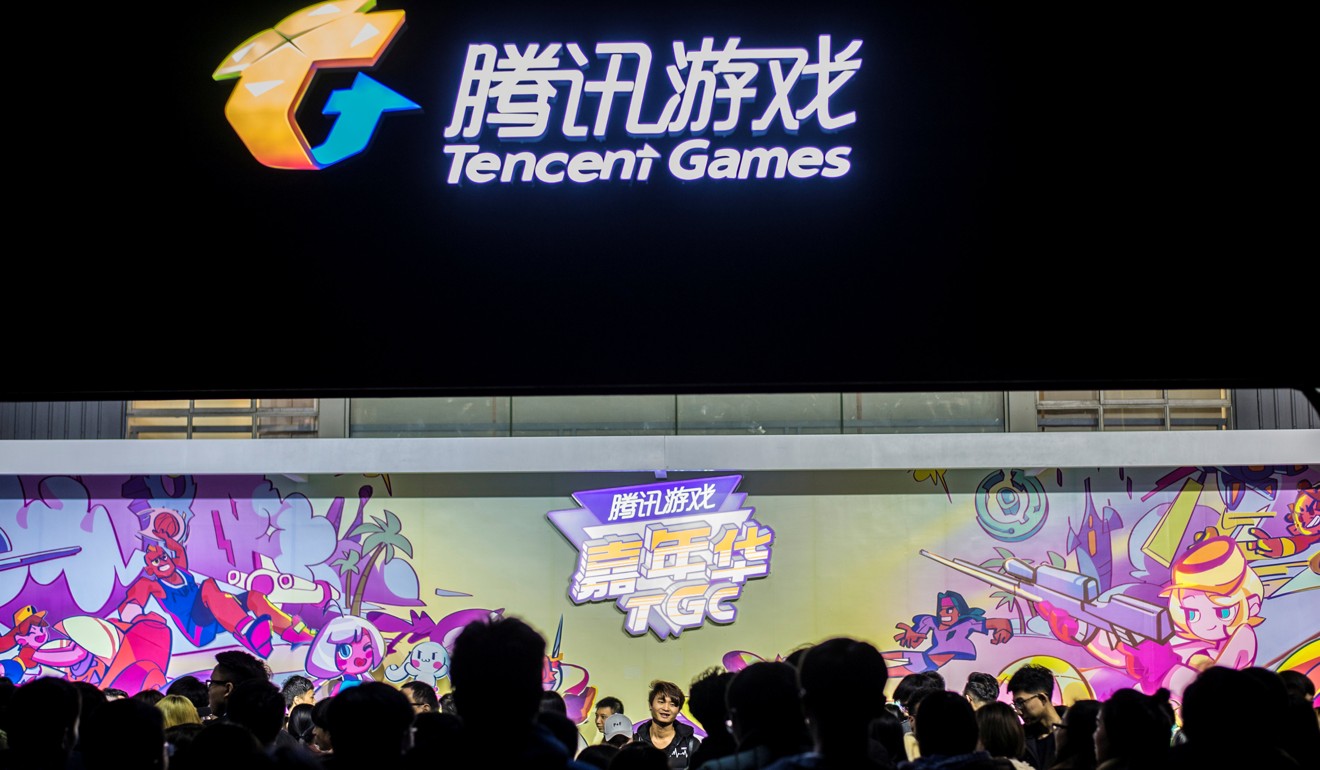
Tencent shares lowest in 15 months, having shed US$220 billion since January
Drop in value more than the entire market cap of Intel, and twice that of Nike
Shares in Tencent Holdings, China’s largest social media and games company, continued their downward spiral on Monday, closing below HK$300 for the first time since July 2017. They ended down 2 per cent at HK$299.00, a seventh straight day of decline.
The stock has now lost HK$1.7 trillion (US$220 billion) in market value since January 29, when it reached an all-time intra-day high of HK$476.60. That is more than the entire market cap of Intel, and twice that of Nike.
“This [today’s drop] is not just about Tencent itself, but also reflects weak investor confidence towards the Hong Kong and China market,” said Norman Hui, a Hong Kong-based analyst with Zhongtai International Securities.
He said the stock may continue its downward trajectory short-term, as the overall market remains weak and Tencent’s core gaming business is still suffering from a regulatory crackdown. He predicted the stock could hit a low range of HK$270 to HK$280 in the short term.
Its recovery, he added, now depends on the company growing its cloud revenue and resuming the launch of new games, which came to a stop earlier this year due to the regulatory hiatus.
This [today’s drop] is not just about Tencent itself, but also reflects weak investor confidence towards the Hong Kong and China market
Tencent’s stock has been getting hammered since March, when its major South African shareholder Nasper reduced its stake for the first time.
It’s also been hit by other factors, including the Chinese government’s tightening control over video games, its first quarterly profit decline in 13 years in the second quarter, weak overall sentiment on the Hong Kong market, and investor fears on the outlook of China’s technology sector amid the escalating US-China trade war.
The Hang Seng Index has also dropped 21 per cent from its peak in January, while the Shanghai Composite Index has shed more, down 24 per cent in the same period.

Neither Tencent’s restructuring plan nor its share buy-backs seems to have stemmed the decline.
On October 2, the company announced its first major restructuring in six years, which will reduce its dependence on video games, set up a new cloud and smart industries business to take on Alibaba, and boost investments in next generation technologies, such as artificial intelligence, robotics, and quantum computing.
Tencent had also bought back its own shares from the public market for a 19th straight session, spending a total of HK$690 million as of last Friday.
“The repurchase is aimed at stabilising its share price, but it’s not enough given its weaker fundamentals, such as its slowing gaming business and uncertainties about regulatory tightening, ” Hui said.
In 2017, Tencent shares soared 115 per cent. While last November it became the first Asian company to top US$500 billion in value, joining Apple and Facebook in a global tech elite club.
Nevertheless, the company has faced growing headwinds since March.
In the second quarter, it posted its first net profit decline in 13 years, as its gaming business took a hit from the regulatory crackdown.

Chinese regulators have stopped approving new online video games since early this year and proposed tighter oversight to address what they see as an epidemic of gaming addiction among the country’s youth.
China’s largest video games company, Tencent derives more than a third per cent of its total revenue from the business.
In August, at least 16 investment banks reduced their target prices for Tencent and cut earnings estimates on regulatory concerns. Bank of China International made the biggest cut, reducing its target price by 17 per cent to HK$390.
One of Tencent’s biggest investments, JD.com, has also suffered a sell-off in the US.
As China’s second largest e-commerce firm and a long-time ally of Tencent, JD.com has seen its stock price plunge 45 per cent this year, weighed down by concerns about its profit margins amid intense competition in China’s e-commerce sector.
Tencent operates China’s most popular mobile messaging app WeChat, also known as Weixin.


